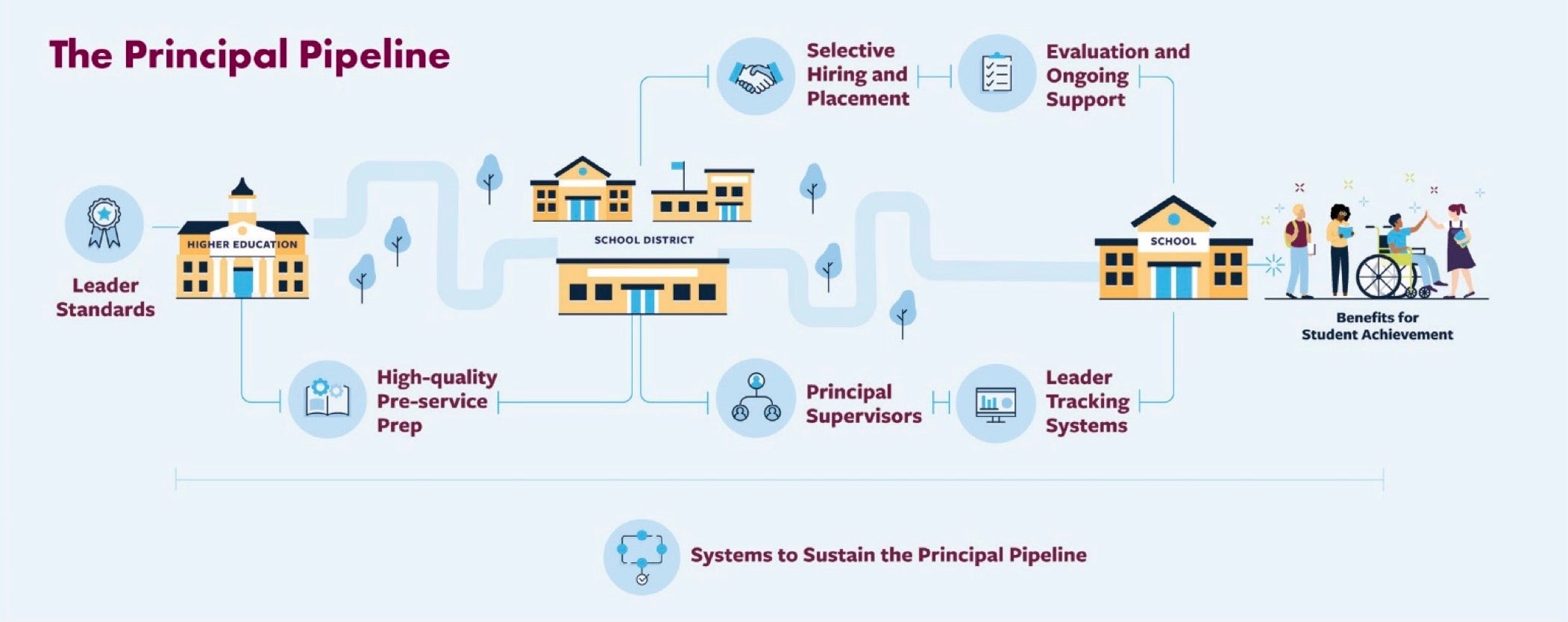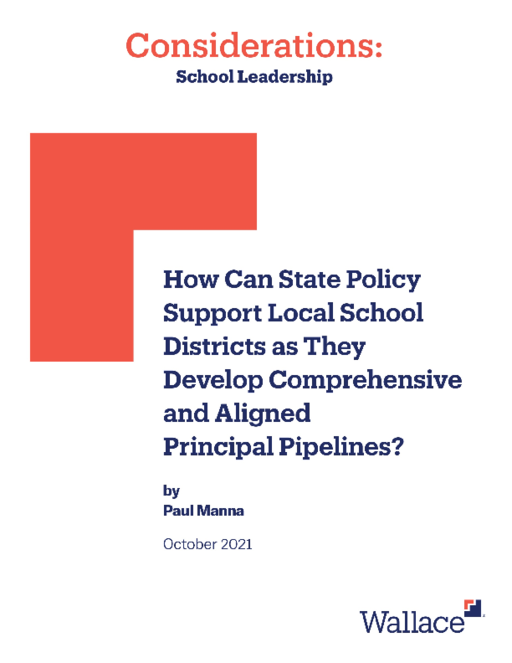Breadcrumb
- Wallace
- Reports
- How Can State Policy Support Loc...
How Can State Policy Support Local School Districts as They Develop Principal Pipelines?

- Author(s)
- Paul Manna
- Publisher(s)
- The Wallace Foundation
Summary
How we did this
Since about 2000, The Wallace Foundation has supported much research and professional practice to enhance the quality of the nation’s principals. This report draws on insights for that work and the work of others, focusing on the nexus between local and state venues. It asks: What would a state’s policy environment look like if it were to support local school districts in developing effective approaches to strengthening the principal corps? The report was the first in an occasional Wallace series titled Considerations, in which Wallace invites leading scholars to share insights based on research and theory on issues of importance to the fields that the foundation supports.
In the United States, developing and supporting school principals is left largely to school districts. But does that mean that states should be bystanders to local efforts? Hardly.
That’s the premise of this report by political scientist Paul Manna.
Specifically, he says, states can help districts build what are known as “comprehensive, aligned principal pipelines.” Research has found that these pipelines can produce a corps of high-quality principals. They are comprehensive because their components span the range of actions school districts can take to develop school leaders. They are aligned because these parts reinforce one another. The parts are:
- Rigorous leader standards
- High-quality pre-service preparation
- Selective hiring and placement
- On-the job evaluation and support through coaching and mentoring
- Growth-oriented principal supervision
- Leader “tracking systems” with data on aspiring and sitting school principals
- Systems to sustain these activities
Manna identifies policy levers or for improving each principal pipeline component. For example, states can improve principal standards by going beyond general descriptions of school leadership. Instead, they can define the skills and knowledge effective principals need. Revised principal standards can then guide other state efforts to improve pipeline components.
The report also provides lists of questions that state and local leaders can ask to guide their work. For example: Are state standards for educational leaders specific enough to help guide practice? Are the standards also flexible enough so local school districts can adapt them to meet their particular needs for principals?

Specifically, states can bolster the effectiveness of principal pipelines when they use their oversight authority to approve degree programs likely to position principals to succeed on the job.
The report also suggests some creative possibilities for state action. One is using licensure renewal as a means of cultivating principal mentors. Typically principals take random courses to meet credit requirements, the report says. Instead, interested veteran principals could pursue training to coach and mentor new principals.
States working with districts and external partners have the power to greatly improve the quality of local principal pipelines. This report provides a roadmap for using policy levers to improve principal effectiveness statewide.
This publication was the first in an occasional Wallace series titled Considerations, in which The Wallace Foundation invites leading scholars to share insights based on research and theory on issues of importance to the fields that the foundation supports.
Key Takeaways
- States can support districts in building “comprehensive, aligned principal pipelines.” Research has found that these pipelines are effective at producing high-quality school leaders.
- States can use policy levers to improve principal pipeline components. For example, states can improve principal standards by going beyond general descriptions of school leadership. Instead, they can define the skills and knowledge effective principals need.
- State and local leaders should reflect on whether current state policies are supporting high-quality principal pipelines. The report provides lists of questions that state and local leaders can ask to guide their work. For example: Are state standards for educational leaders specific enough to help guide practice?
- The report also suggests creative possibilities for state action. One is using licensure renewal as a means of cultivating principal mentors. Typically principals take random courses to meet credit requirements, the report says. Instead, interested veteran principals could pursue training to coach and mentor new principals.
Visualizations


